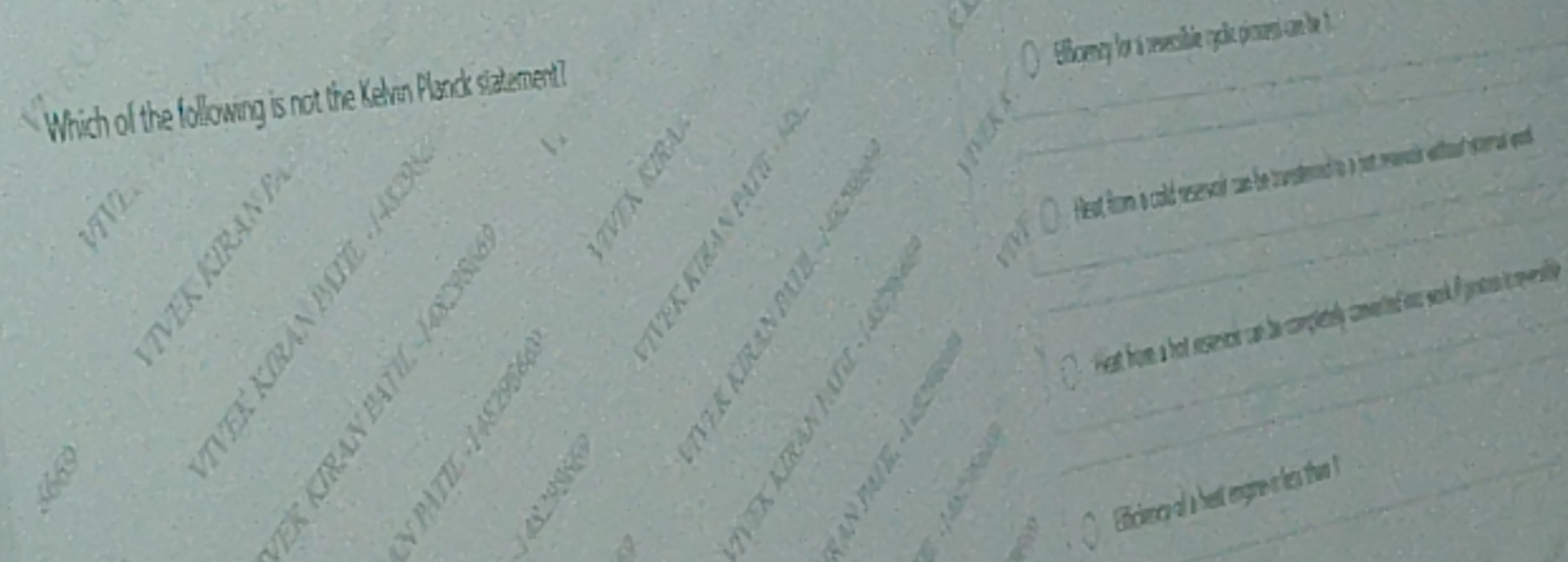Question
Question: Which of the following is not the Kelvin Planck statement?...
Which of the following is not the Kelvin Planck statement?

A
Efficiency for a reversible cycle process can be 1.
B
Heat from a cold reservoir can be transferred to a hot reservoir without external work.
C
Heat from a hot reservoir can be completely converted into work if process is reversible.
D
Efficiency of a heat engine is less than 1.
Answer
Heat from a cold reservoir can be transferred to a hot reservoir without external work.
Explanation
Solution
The Kelvin-Planck statement asserts that no heat engine can convert all absorbed heat into work, meaning its efficiency must be less than 1.
- Option 4 directly states this, so it is the Kelvin-Planck statement.
- Options 1 and 3 contradict the Kelvin-Planck statement by suggesting 100% efficiency or complete heat-to-work conversion is possible. Thus, they are not the Kelvin-Planck statement.
- Option 2 describes a violation of the Clausius statement of the second law (heat transfer from cold to hot without work). While the Kelvin-Planck and Clausius statements are equivalent, they are distinct formulations. Therefore, option 2 is not the Kelvin-Planck statement, but rather a violation of its equivalent, the Clausius statement. Among the choices that are "not" the Kelvin-Planck statement, option 2 stands out as describing a different specific aspect of the second law's impossibility (heat transfer direction vs. work conversion efficiency).
Therefore, the correct answer is that heat from a cold reservoir cannot be transferred to a hot reservoir without external work.
